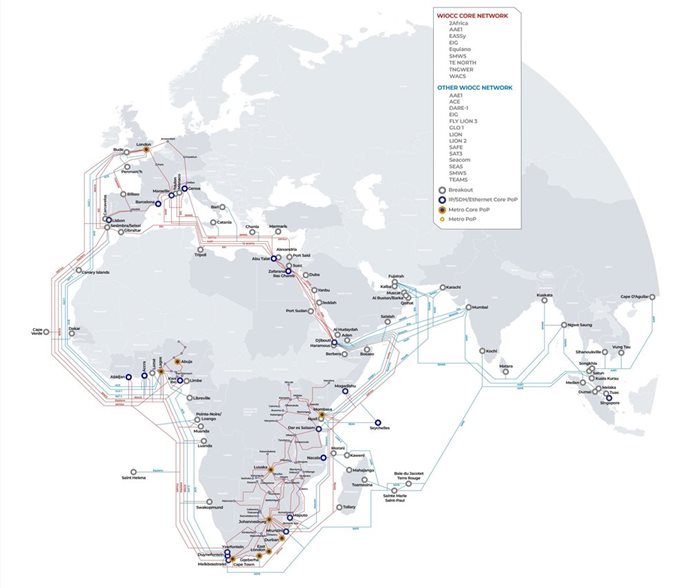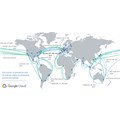WACS undersea cable fixed, but infrastructure bosses call for more resilience

“You can't have one cable feeding West Africa and say you have resilience,” exclaimed Abbas.
“We're preparing our networks to be futureproof and metaverse ready, so we need to think differently and get more hyperscalers into Africa and move data closer to the edge. This will help drop latency because we can add all the cables we want, but if we’re sending the traffic out of the continent then that 20ms latency will still be there.”
He is speaking about the major cloud services from the likes of Microsoft, Amazon and Google. All three have established servers in South Africa, with Microsoft being first to market with a major data centre in 2019.
Bringing data to the edge
Hyperscale data centers are becoming increasingly common in Africa, with South Africa being a snapshot of things to come. Vantage Data Centers in December announced that it is building a second facility in Johannesburg.
Teraco already operates eight around the country and is expanding capacity at its JB4 facility in Ekurhuleni.
According to a report from Synergy Research Group, there are now around 900 large data centres operated by hyperscale companies, accounting for approximately 37% of global capacity. Only 94 of those are in Africa, which leaves the continent heavily reliant on connectivity to Europe.
This will only increase with the rapid change in the ratio of cloud to on-premise capacity. Hyperscale operators are expected to account for over half of all capacity by 2030.
The costs, however, are high. Teraco took out a R12bn loan from Absa in January to refinance debt and cover its continued growth. Half has been reserved for future expansion.
The problem is the customer
“The big problem is that customers want to pay very little and unfortunately the costs of providing the service is high,” explains Sher.
“We (WIOCC) have two routes into South Africa and we still can't get the capacity that the customers demand, at a cost effective rate. In Nigeria there's no business case to build without a mobile network. The guys are managing to mesh the networks to some extent, but it's difficult to get diversity.”
That diversity is a big part of the cable repair debate with the economics of the older and lower capacity SAT-3 proving a sticking point. Sher says that when new cables are installed it makes sense from a diversity perspective, but the maintenance costs add up quickly.

“You need physical redundancy and logical redundancy,” comments Oosthuysen. “We have a retail customer with over 2,000 stores, but during stage 6 loadshedding they lose 4-6 hours of trade. For them to build resilience they go to satellite link and a battery pack which increases their cost.”
Liquid Intelligent Technologies signed a multi-year, multi-beam agreement with Eutelsat Communications last September. The initial deal was to use the satellite operator’s Eutelsat Konnect satellite to serve customers across Africa.
“Liquid has access to 11 cables in Africa. What we will do in the future is to bring the capacity from the landing stations into the data centres so that customers buy capacity at the data centres, and we can switch dynamically,” he said. “But does it make sense for us to buy and add capacity when customers are only buying 20% of that?”
The panel agreed that the biggest hinderance to building the required resilience is costs and urged the audience to petition governments to invest in internet infrastructure to help share the financial burden.










































